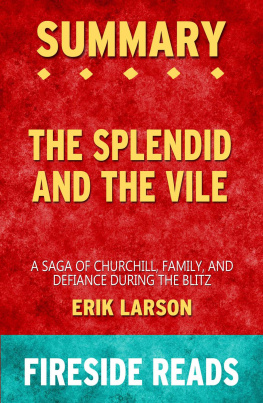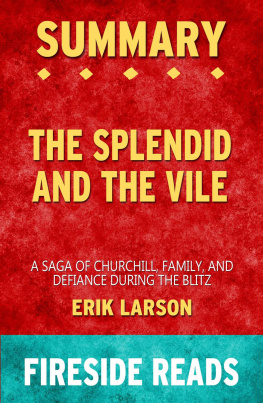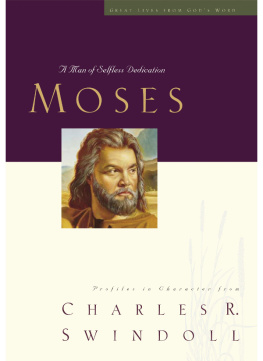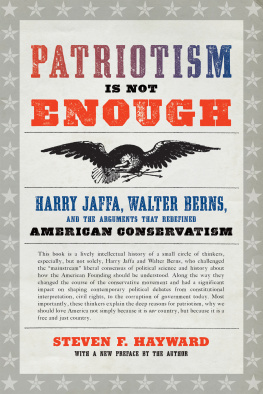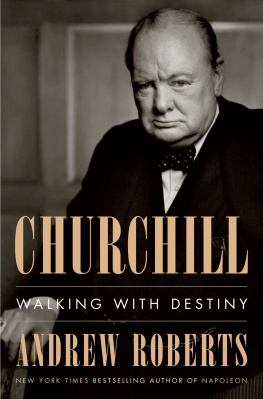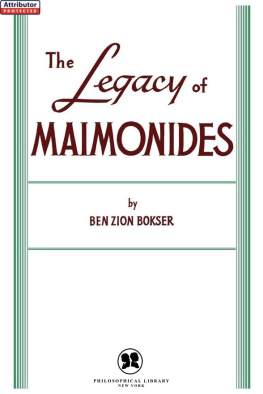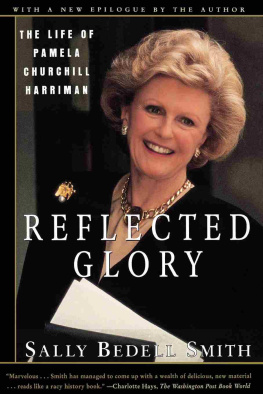Christopher Ogden - Legacy: A Biography of Moses and Walter Annenberg
Here you can read online Christopher Ogden - Legacy: A Biography of Moses and Walter Annenberg full text of the book (entire story) in english for free. Download pdf and epub, get meaning, cover and reviews about this ebook. year: 2009, publisher: Little, Brown and Company, genre: Non-fiction. Description of the work, (preface) as well as reviews are available. Best literature library LitArk.com created for fans of good reading and offers a wide selection of genres:
Romance novel
Science fiction
Adventure
Detective
Science
History
Home and family
Prose
Art
Politics
Computer
Non-fiction
Religion
Business
Children
Humor
Choose a favorite category and find really read worthwhile books. Enjoy immersion in the world of imagination, feel the emotions of the characters or learn something new for yourself, make an fascinating discovery.

- Book:Legacy: A Biography of Moses and Walter Annenberg
- Author:
- Publisher:Little, Brown and Company
- Genre:
- Year:2009
- Rating:3 / 5
- Favourites:Add to favourites
- Your mark:
- 60
- 1
- 2
- 3
- 4
- 5
Legacy: A Biography of Moses and Walter Annenberg: summary, description and annotation
We offer to read an annotation, description, summary or preface (depends on what the author of the book "Legacy: A Biography of Moses and Walter Annenberg" wrote himself). If you haven't found the necessary information about the book — write in the comments, we will try to find it.
Legacy: A Biography of Moses and Walter Annenberg — read online for free the complete book (whole text) full work
Below is the text of the book, divided by pages. System saving the place of the last page read, allows you to conveniently read the book "Legacy: A Biography of Moses and Walter Annenberg" online for free, without having to search again every time where you left off. Put a bookmark, and you can go to the page where you finished reading at any time.
Font size:
Interval:
Bookmark:
Copyright 1999 by Christopher Ogden
All rights reserved. No part of this book may be reproduced in any form or by any electronic or mechanical means, including information storage and retrieval systems, without permission in writing from the publishers, except by a reviewer who may quote brief passages in a review.
Warner Books, Inc.
Hachette Book Group
237 Park Avenue
New York, NY 10017
Visit our website at www.HachetteBookGroup.com
First eBook Edition: November 2009
ISBN: 978-0-316-09244-9
E2-20181211-JV-PC-VAL
Maggie: An Intimate Portrait
of a Woman in Power
Life of the Party: The Biography of
Pamela Digby Churchill Hayward Harriman
For Deedy with love

P RINCESS MARGARET and the Earl of Snowdon were the official honores at the most anticipated party of Londons 1969 fall social season, although none of the 435 guests in black tie, floor-length gowns and constellations of gems came to see them. Several were distracted when Snowdon, the photographer husband of the queens younger sister began trading kisses with ballet star Rudolf Nureyev. Whispers of an old Russian custom, of course, buzzed, but otherwise failed to shift the attention of the ball-goers from the solidly built, gray-haired man greeting guests, the striking blonde woman at his side, or from the jaw-dropping beauty of the rooms in which they had begun to mingle.
It was 10:40 P.M. on a crisp, clear Tuesday, November 25, and on the crushed-rock driveway of the Georgian mansion in Regents Park there was Rolls-Royce-, Bentley-, and Daimler-lock as chauffeurs jockeyed to disgorge one past and two future prime ministers, much of the Labour government cabinet, foreign office mandarins, twenty ambassadors and high commissioners, plus sundry princes, dukes and duchesses, marquesses, earls, viscounts, lords, knights, publishers, authors, actors, barristers, business executives and one maharajah of Jaipur, naturally.
As the majordomo called out each name, Walter Annenberg greeted the arrivals with a penetrating look, a firm handshake, and a hearty welcome to Winfield House, residence of the American ambassador to the Court of St. Jamess that he had just spent one million of his own dollars fixing up, or as he had famously put it, refurbishing. At his right side, where he cannot hear, stood his wife, Leonore. Wearing an impeccable pale yellow satin dress made by Hardie Amies, the queens favorite designer, and her $400,000 ruby necklace and earrings, Lee, as she is known, eased guests into the party with the easy smile and warmth of a born hostess.
Neither she nor Walter revealed the slightest hint of the anger, frustration, nervousness and exhaustion that had plagued them since their arrival in Britain seven months earlier, although both knew that their future in London hinged on how this evening was received. Success would go a long way toward relieving the torrent of criticism they had endured from the moment word leaked out in December 1968 that the newly elected Richard Nixon intended to give his friend Walter the juiciest patronage plum that a president can dispense. Failure would mean that they might as well cut their losses and return home to Philadelphia and Sunnylands, their winter retreat near Palm Springs. The latter was so palatial that on his first visit Prince Charles, no stranger to palaces, cracked, You gave up this to move to London?
Neither Annenberg had ever been a quitter, but by the time of this party, they had already had second thoughts about the posting. Walter had even told Secretary of State William Rogers that he would leave Britain if he were embarrassing the president. Rogers just had to say the word and he and Lee would start packing. Walters difficulties were so well known that self-designated candidates to replace him had begun lining up. The secretary of state told his novice ambassador that Nixon had no intention of pulling him out and urged him to keep putting one foot in front of the other. This too would pass. Walter knew Rogers was right. He and his family had been under attack for much of his life, a condition he shared with Nixon and which had cemented their friendship. Life is ninety-nine rounds, he used to tell the then vice president in 1956 when Dwight Eisenhower nearly dropped him as his second-term running mate and in 1960 after Nixon lost the presidency to John F Kennedy. During and after Watergate, Walter would remind him of the adage again. Now he was repeating the words, mantra-like, to himself.
He had anticipated the reaction to his nomination. When Nixon offered the London embassy to him while visiting Sunnylands soon after the election, Walter initially balked. As publisher of the Philadelphia Inquirer, he recognized from his own enthusiastic participation just how bloody political arenas could become. He warned the president-elect that his confirmation hearing could be embarrassing to the new administration. Damaging allegations about his father, Moses, would be dug up and replayed while Walter was left to swing in a fetid breeze, his naturally combative and retaliatory instincts constrained by his very nomination to become a diplomat. When Nixon insisted that he could stand the heat if Walter could, Annenberg accepted.
The Senate Foreign Relations Committee hearing chaired by J. William Fulbright, the anti-war activist and Nixon critic, was acrimonious. A quarter century had passed since his father died, but, as he had expected, Walter was forced to respond to infuriating rumors, complex half-truths and agonizing facts about Moses Annenberg. One of eleven children, Moses had come penniless from East Prussia in 1885 to Chicago, where, at the turn of the century, he was hired by publisher William Randolph Hearst to battle rival newspapers sometimes with baseball bats and guns for circulation gains on the streets of the citys tough South Side. Fearless and a brilliant businessman despite a lack of formal education, Moses moved to New York, bought the Daily Racing Form, the racetrack bible, and the General News Bureau, which supplied racing data electronically to legitimate news outlets and most of the nations illegal bookmakers. With a monopoly on track information, Moses earned millions, but the links of his empire to the underworld tainted his reputation. He became determined to leave a more respectable legacy to his only son, whose character he was trying to mold through such a skewed mix of indulgence and brutality that Walters own personality would feature dramatic contradictions.
Moses bought the failing Philadelphia Inquirer, a bastion of Pennsylvanias conservative Republicanism, and battered into submission the rival Philadelphia Record, owned by New Dealer J. David Stern, one of then president Franklin D. Roosevelts most ardent supporters. The pro- and anti-FDR battle in the City of Brotherly Love in the late 1930s prompted a federal investigation of Moses, who admitted guilt to one count of income tax evasion as part of a plea bargain in which charges against Walter were dropped. Moses was hit with one of the highest U.S. civil fines in history $9.5 million, or $110 million in current dollars was jailed and released two years later in 1942 to die. Walter, until then little more than a college dropout and a playboy with a bad stutter, paid the fine, rescued the family business and, battling guilt over his fathers sacrifice, began displaying extraordinary talents no one knew he had.
During Word War II, Walter launched Seventeen magazine for young women and in 1953 TV Guide, the most profitable weekly ever published. Through the Inquirer he became, like his father, a political kingmaker in Pennsylvania, backing favorite candidates and projects and leaving little doubt about where his often but not inflexible Republican sympathies lay. As the television era boomed, Walter bought and built stations and launched programs as diverse and popular as
Next pageFont size:
Interval:
Bookmark:
Similar books «Legacy: A Biography of Moses and Walter Annenberg»
Look at similar books to Legacy: A Biography of Moses and Walter Annenberg. We have selected literature similar in name and meaning in the hope of providing readers with more options to find new, interesting, not yet read works.
Discussion, reviews of the book Legacy: A Biography of Moses and Walter Annenberg and just readers' own opinions. Leave your comments, write what you think about the work, its meaning or the main characters. Specify what exactly you liked and what you didn't like, and why you think so.

